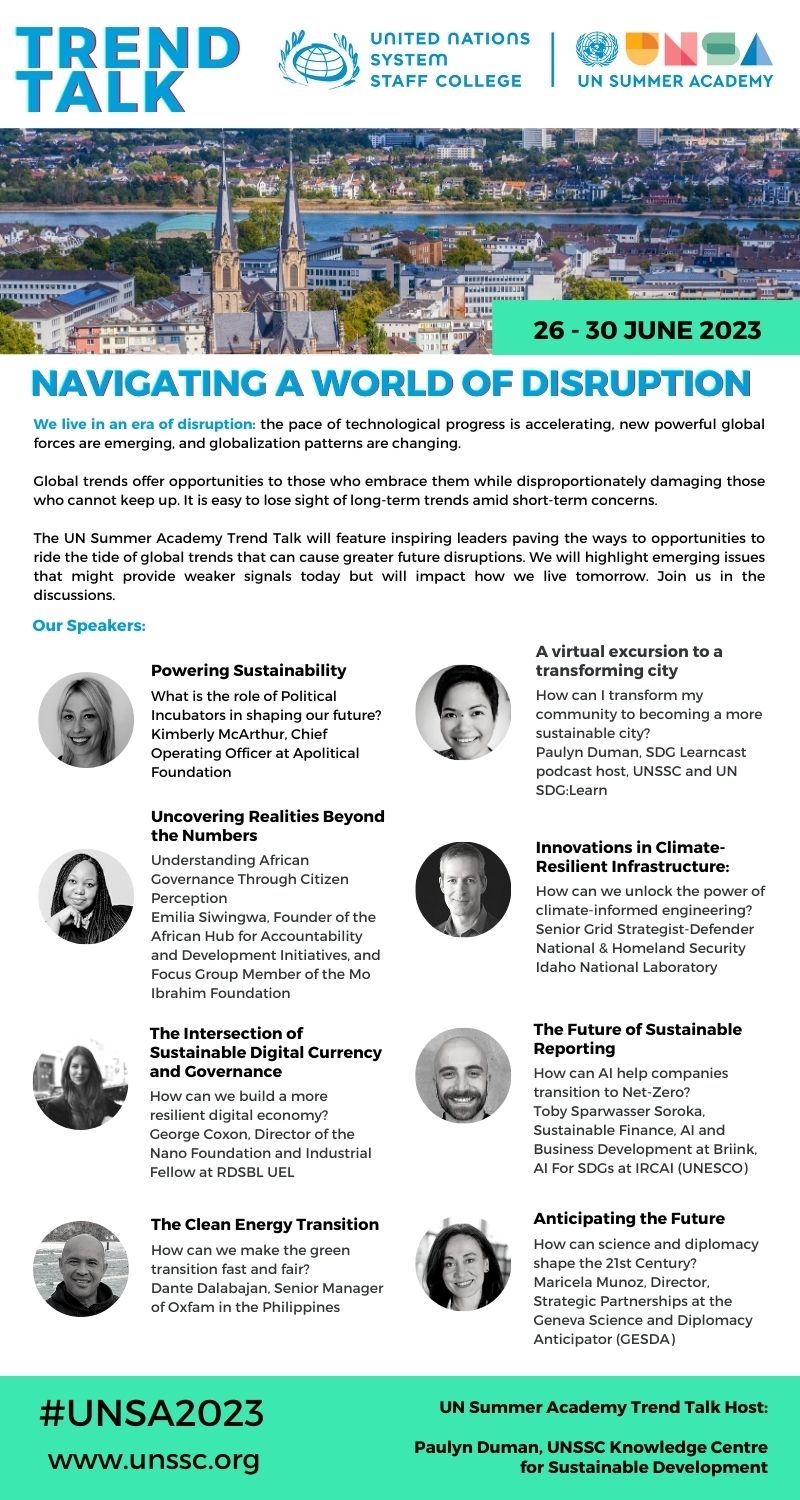Shaping tomorrow: innovative governance for a sustainable and equitable world
As we navigate the complexities of the 21st century, it's more important than ever to explore the key topics shaping the future of governance for sustainable development. In this article, we delve into critical issues such as the roles of political incubators, citizen perception in African governance, the clean energy transition, global climate governance, AI in sustainable reporting, sustainable digital currency, and science diplomacy. By understanding these topics, we can pave the way towards a more equitable, prosperous, and sustainable future.
Political Incubators: Fostering Values-Driven Leaders
One such topic in this regard is political incubators. As global challenges become more intense, the need for knowledgeable, skilled, and values-driven leaders has become increasingly crucial. Political incubators act as a bridge between grassroots movements and political leadership, nurturing politicians who can drive impactful change, build trust with citizens, and reduce polarization. By fostering a more diverse and representative political system, political incubators can help guide us towards a more sustainable and equitable future.
African Governance: The Importance of Citizen Perception
Another essential perspective is understanding African governance through the lens of citizen perception. The Ibrahim Index of African Governance (IIAG) is a valuable tool that measures governance performance across the continent. However, it is essential to complement this data with citizen assessments, which provide a more nuanced understanding of the realities on the ground. Policymakers can gain deeper insights into the successes and shortcomings of governance initiatives by focusing on the lived experiences of ordinary people and addressing the needs of African citizens.
Clean Energy Transition: Balancing Speed and Fairness
The transition to clean energy is also a crucial aspect of sustainable governance. As the global community grapples with the impacts of climate change, transitioning to renewable energy sources has become a top priority. However, the process must be fast and fair, ensuring that no one is left behind. Good governance is essential in managing the distribution of costs and benefits, addressing energy access and social and environmental justice issues, and empowering marginalized communities. International cooperation plays a vital role in supporting the transition, as exemplified by global initiatives like the Paris Agreement and the 2030 Agenda for Sustainable Development.
Charting the Course for Climate-Informed Engineering: A Path Towards Tangible Resilience
Despite advancements, the integration of climate considerations into engineering remains an urgent necessity. The current landscape, while gradually evolving, still falls short of sparking the transformational change we need. To truly harness the power of climate-informed engineering, we must convert theoretical principles into tangible, on-ground actions. This calls for a paradigm shift - a dynamic and holistic approach guided by visionary leaders. By putting resilient infrastructure at the forefront, we can build a future that not only withstands the impacts of climate change, but actively mitigates them. This vision, however, cannot be achieved in isolation. It demands the engagement of diverse stakeholders, from researchers unravelling the latest climate data to architects pioneering green infrastructure.
AI in Sustainable Reporting: Revolutionizing Transparency
Artificial intelligence (AI) has the potential to revolutionize sustainable reporting and help companies transition to net-zero. As organizations come under increasing pressure to provide transparent and reliable data on their sustainability performance, AI can streamline this process by matching financial data and activities to relevant criteria, saving time and effort. However, ensuring that AI models are transparent, explainable, and ethically designed is essential to prevent perpetuating data biases in sustainable finance.
Sustainable Digital Currency: Fostering Transparency and Good Governance
In today's world, characterized by mounting environmental concerns, sustainable digital currencies could play a pivotal role in revolutionizing the financial landscape. It is imperative to adopt innovative governance models for digital currencies, ensuring minimal carbon footprints and integrating sustainability principles into decision-making processes. By doing so, we can foster greater transparency and promote democratic governance within the digital currency domain. It is crucial to gain valuable insights into the cutting-edge technology underpinning digital currencies to help us better comprehend their role in shaping the future of currency within an increasingly decentralized world.
Science Diplomacy: Shaping the 21st Century
Finally, the intersection of science and diplomacy is key to shaping the 21st century. Science diplomacy is becoming increasingly important in international policymaking and diplomacy, as evidenced by the involvement of top scientists in high-level political negotiations. The Geneva Science and Diplomacy Anticipator (GESDA) is an organization working to harness the potential of science and technology to create a sustainable future, fostering collaboration between academic, diplomatic, and citizen communities.
Understanding these topics, which we will unpack in the upcoming UN Summer Academy Trend Talk, is essential to developing and implementing effective governance strategies for sustainable development. By fostering political incubators, engaging citizens in the governance process, ensuring a fast and fair clean energy transition, improving global climate governance, leveraging AI for sustainable reporting, and embracing the potential of science diplomacy, we can create a more sustainable, equitable, and prosperous world for generations to come.
UN Summer Academy: Join the Movement for Sustainable Governance
The UN Summer Academy in June offers a unique opportunity to delve deeper into these crucial topics and more. Featuring a wide range of expert speakers, interactive workshops, and engaging discussions, the Summer Academy provides participants with invaluable insights and tools to foster sustainable governance in their own organizations and communities. Join us in shaping a brighter future for all by signing up for the UN Summer Academy and becoming part of a global community of change-makers.
Register by 12 May 2023 at this link: https://www.unssc.org/courses/un-summer-academy-0

